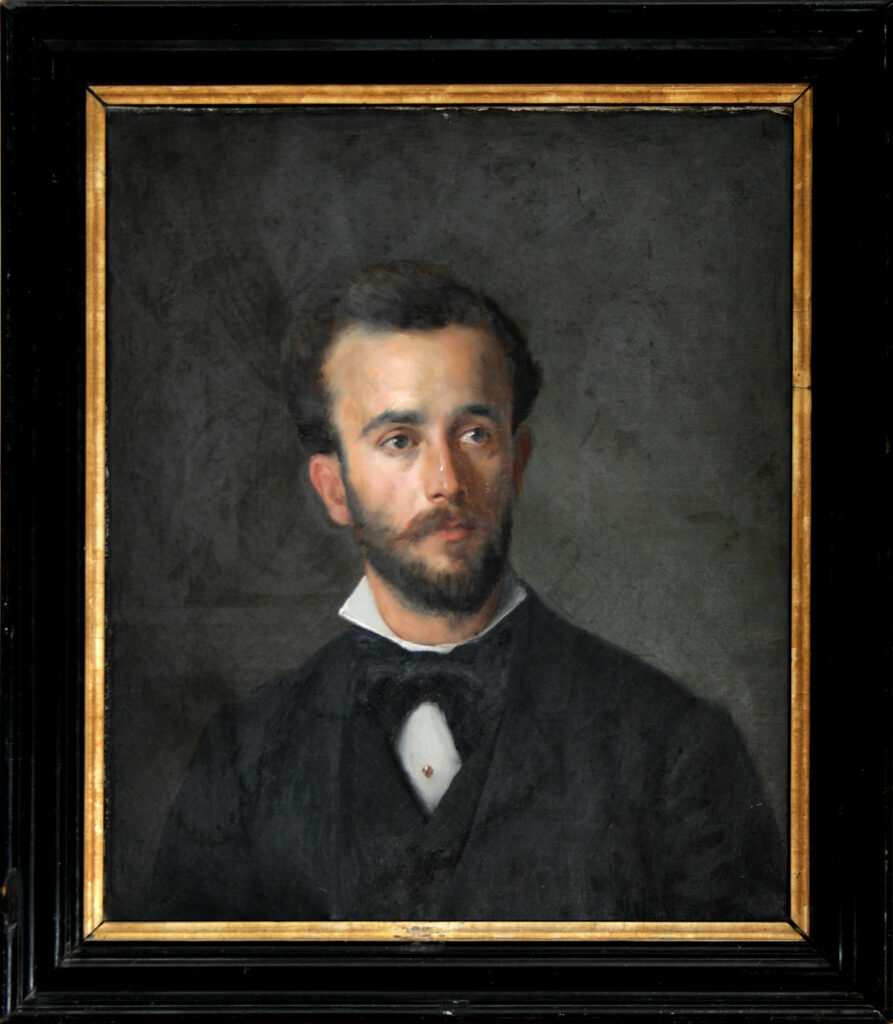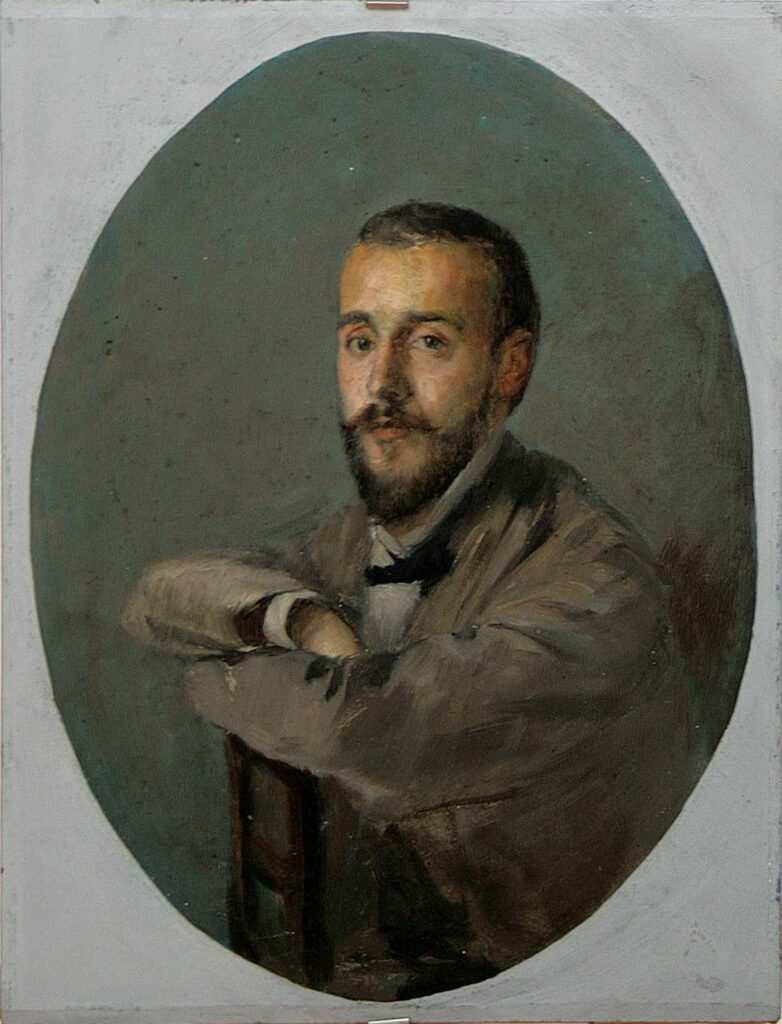When Vlaho Bukovac, still known as Vlaho Fagioni, set out to fulfill his second labour contract overseas in early 1873, his brother Jozo joined him in this endeavour. In truth, it was Vlaho who was his brother’s attendant. Since it was rumoured in Cavtat that a local woman had received a substantial sum of money from her son who had worked in Peru for only one year, the Faggioni brothers thought it would be convenient to try their luck in Peru. Therefore, Jozo asked his father to secure money for the distant voyage, promising that he would prosper `and not return naked and half-starved from America as Vlaho did‘. Their father saw that Vlaho, who had just recovered from a head injury he received during his tenure as a sailor, was hurt by his brother’s words, he immediately decided that both of his sons would embark on the voyage in question.
Therefore, the seventeen-year-old Vlaho, already equipped with life experience beyond his years, along with his two-year older brother and another young man from Cavtat, joined a group of 25 men sailing out from Dubrovnik in order to start new lives; however, their primary goal was to acquire some personal property.
This endeavour would turn out to be a valuable life lesson for Jozo. The voyage was arduous –he passed through Panama in the midst of a revolution, and Captain Bronzan gave him and the others a warning before even arriving in Peru (`You poor people are also going to that cursed country to breathe your last there!’). Jozo and his friend from Cavtat could not find any opportunity to work and earn money for two months following their arrival. Thanks to Vlaho, who immediately found work by painting railway wagons, they had accommodation and food. It is certainly during this time that the brothers formed a bond which would last for the rest of their lives; this closeness was evidenced by their correspondence.
Vlaho left Peru for San Francisco, while Jozo returned to Cavtat. The latter was engaged in commerce, while also actively participating in the social life of Cavtat. In 1886, Jozo married Aneta Grgin, born in Trogir. With their three children – Ago, Marija (nicknamed Etica), and Vinko – they lived a peaceful and harmonious life until the beginning of the First World War. Then everything changed.
The letter which Jozo sent to his brother Vlaho (who was living in Prague at the time) on 19th June 1915 provides the following information on his life during the First World War:
Well, it’s been almost a month that we’re neither at home nor on the road; instead, I’ve been wandering hither and thither and I don’t even know how I manage it. You should know that Cavtat was evacuated three days before Italy’s declaration of war, so I left all my possessions at the mercy of God. I stayed with Aneta in Dubrovnik for a few days, and then we went to Drniš…‘
Jozo’s son Ago was on the battlefield, while Vinko was on a ship in America. In November of the same year, Jozo wrote to Vlaho from Cavtat. Ago was still on the battlefield in Italy and Vinko was still in America. Jozo’s wife, Aneta, was in Drniš with their daughter: `I’m not going to bring Aneta here until things clear up; she is healthy and is taking care of little Frano, who keeps her busy all the time because he’s too lively…‘
Jozo always wrote with great love about his family, and always inquired about Vlaho’s family with great interest. While writing about everyday life in wartime Cavtat, he wrote: `but there is another worry that oppresses and torments me, the thought that keeps me awake at night – the fate of my boy Ago. I will write of this no more, for tears are already running down my face…‘ In his next letter to Vlaho, he asked his brother, an acquaintance of many `high-ranking officials and members of the Austrian Royal Family‘, to advocate for Ago’s removal from the battlefield and subsequent reassignment to a safer post. The reason for this request were the quite frequent and debilitating nosebleeds from which Ago suffered. Bukovac, prompted by his brother’s request, wrote to a certain Hofrath von Vuković in Vienna, requesting a safer post for his nephew Ago, who had already proven himself on the battlefield. However, Ago was fated to die in June 1916, before his reassignment.
The war took the life of Etica’s husband, Rudolf Franić, which prompted Jozo to bring her and her young son, Frano, to Cavtat. However, Aneta Faggioni could not overcome the overwhelming sadness that plagued her. She took her own life in April 1917.
`Ah, dear Vlaho, I have been stricken by God’s right hand, and I don’t know why, because I have never done or wished any harm to anyone,’ Jozo wrote to his beloved brother.
Devastated by these unfortunate events, Jozo Fagioni passed away in Cavtat on 14th May 1919.



